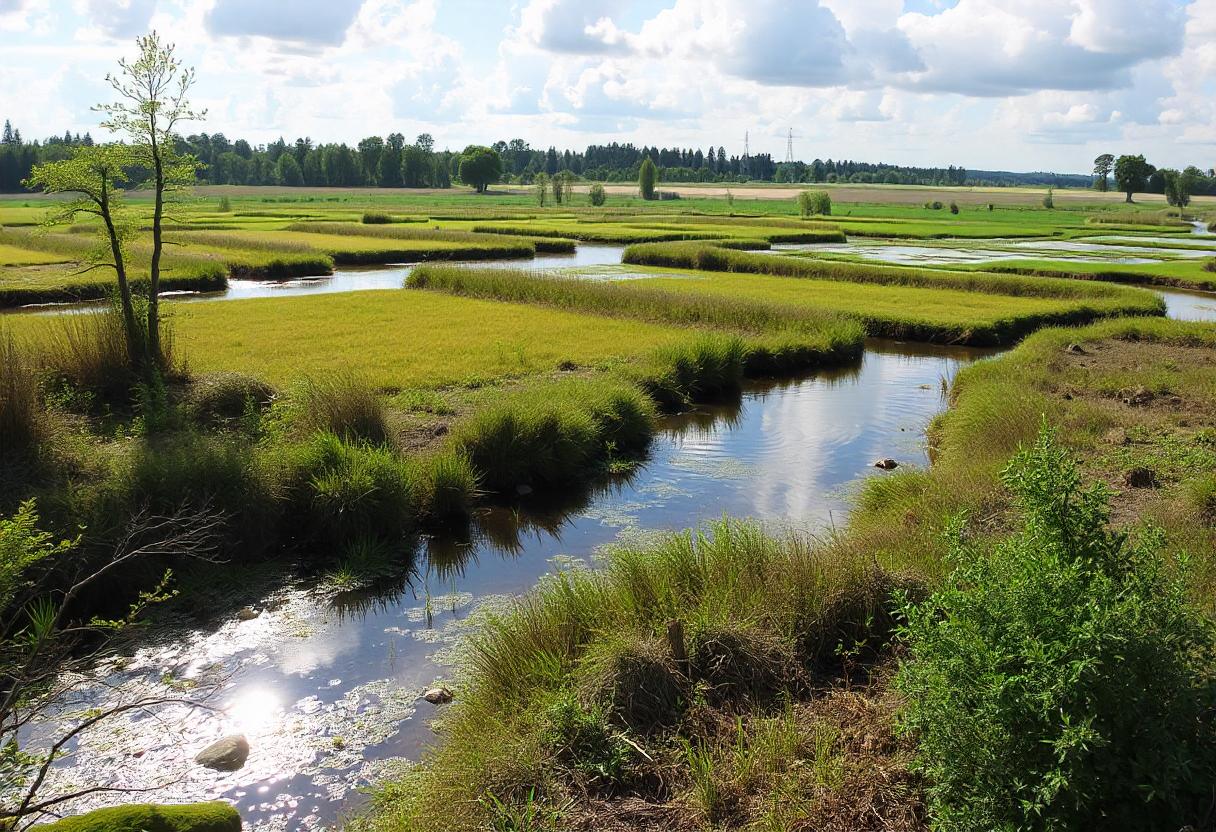
Introduction
Agriculture plays a significant role in supporting human populations and economies, but it also has a profound impact on freshwater ecosystems. The interaction between agriculture and freshwater systems can lead to environmental changes that affect water quality, aquatic biodiversity, and ecosystem health.
Nutrient Runoff and Eutrophication
Agricultural activities, especially the use of fertilizers, can lead to nutrient runoff, where excess nitrogen and phosphorus enter freshwater bodies. This runoff can cause eutrophication, a process where water bodies experience excessive nutrient enrichment. Eutrophication stimulates the growth of algae, leading to harmful algal blooms that deplete oxygen levels in the water. The result is the formation of dead zones, where aquatic life cannot survive due to a lack of oxygen.
Pesticide Contamination
Pesticides used in agriculture to control pests and diseases can have detrimental effects on freshwater ecosystems. When pesticides are washed into rivers, lakes, and streams, they can contaminate the water and harm aquatic species. These chemicals can be toxic to fish, amphibians, and invertebrates, disrupting food chains and leading to a decline in biodiversity. Additionally, some pesticides accumulate in the tissues of aquatic organisms, potentially harming species at higher levels of the food chain.
Water Abstraction for Irrigation
Water abstraction for irrigation is another major way agriculture impacts freshwater ecosystems. In many agricultural regions, large amounts of water are diverted from rivers and lakes to irrigate crops. This reduces the availability of water for aquatic habitats, altering the natural flow of rivers and streams. Over time, reduced water levels can lead to habitat degradation, affecting species that rely on consistent water availability for their survival.
Sediment Pollution
Agricultural activities such as plowing, deforestation, and land clearing can increase soil erosion, leading to sediment pollution in freshwater ecosystems. When sediment enters rivers and lakes, it can cloud the water and smother aquatic habitats. Sediment pollution can also reduce light penetration in the water, affecting the growth of aquatic plants and disrupting the habitat of fish and other species. In some cases, sediment can carry pollutants like heavy metals, further degrading water quality.
Impact on Aquatic Biodiversity
Agricultural practices can significantly impact aquatic biodiversity. The alteration of freshwater ecosystems due to nutrient runoff, pesticide contamination, and habitat degradation can lead to the decline or extinction of species. Freshwater ecosystems are home to a diverse range of species, many of which are highly sensitive to changes in water quality and habitat structure. When agricultural practices degrade these ecosystems, it can result in a loss of biodiversity and the disruption of ecological processes.
Alteration of Wetlands
Wetlands play a crucial role in maintaining freshwater ecosystems by acting as natural filters and regulating water flow. However, agricultural expansion often leads to the drainage or conversion of wetlands into farmland. The loss of wetlands can have severe consequences for freshwater ecosystems, as it removes vital habitats for species, reduces water quality, and increases the risk of flooding. Wetlands also serve as important carbon sinks, and their destruction can contribute to climate change.
Introduction of Invasive Species
Agriculture can also contribute to the introduction of invasive species into freshwater ecosystems. In some cases, crops or livestock brought from other regions may introduce non-native species that outcompete native organisms. Invasive species can alter the structure of freshwater ecosystems by changing food webs, reducing biodiversity, and destabilizing ecological balance. These changes can be difficult to reverse and can have long-term effects on ecosystem health.
Climate Change and Water Availability
Agriculture is a significant contributor to greenhouse gas emissions, and climate change can further exacerbate the impact on freshwater ecosystems. Rising temperatures, changes in precipitation patterns, and increased frequency of droughts can affect water availability and the overall health of freshwater ecosystems. These changes can make freshwater habitats more vulnerable to pollution, invasive species, and habitat degradation, creating a feedback loop that further threatens ecosystem stability.